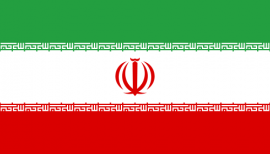 The Iranian Supreme Court has upheld the lower Revolutionary Court’s decision to sentence Saeed Malekpour, the 35 year old developer of some photo-uploading software, to death due to that software being used by porn and other “immoral” websites and services. Having anything to do with pornography is “insulting and desecrating [to] Islam” according to the court, which has now brought forward Malekpour’s date of execution, even though he maintains that he did not know his software was being used in this way according to Amnesty International.
The Iranian Supreme Court has upheld the lower Revolutionary Court’s decision to sentence Saeed Malekpour, the 35 year old developer of some photo-uploading software, to death due to that software being used by porn and other “immoral” websites and services. Having anything to do with pornography is “insulting and desecrating [to] Islam” according to the court, which has now brought forward Malekpour’s date of execution, even though he maintains that he did not know his software was being used in this way according to Amnesty International.
The Iranian regime is in the midst of a clampdown on digital expression in the country with blogger Vahid Asghari and website administrator Ahmad Reza Hashempour both also on death row after apparently unfair trials, awaiting execution on internet-related charges.
In the last couple of weeks journalist and blogger Marzieh Rasouli and journalist and photographer Sahamaddin Bourghani were both arrested by security forces at their homes in Tehran. Women’s rights activist and blogger Parastoo Dokouhaki and Simin Nematollahi, contributor to Sufi news site Majzooban-e Noor, have also recently been arrested and charged with “propaganda against the system”.
The “Blogfather” of Iran, dual Iranian/Canadian national, Hossein Derakhshan, famed for introducing the sunlight of blogging to Iran is still serving a 19 and a half year sentence on internet-related charges, with fellow blogger Hossein Ronaghi Maleki also serving a 15-year sentence for his writings on the internet.
The lack of borders on the internet continues to cause issues for democratic and dictatorial systems alike around the globe as a connection equates to a relatively free flow of information – making ideas ever more difficult to suppress. China’s “Great Firewall” has holes and that is the most sophisticated solution to date, with most countries failing to grasp the underlying infrastructure of the internet nearly as much as they misunderstand the internet’s role in modern society. One thing is sure – we do not want to start building tools of suppression to prevent copyright infringement under the banners of SOPA or PIPA that will then be used by repressive regimes against their citizens for political and idealistic reasons. The internet and individual bloggers are shining a light into these regimes, showing their cracks like never before, and we must do everything we can to support them – not produce to tools to silence them
[source: Amnesty International]

